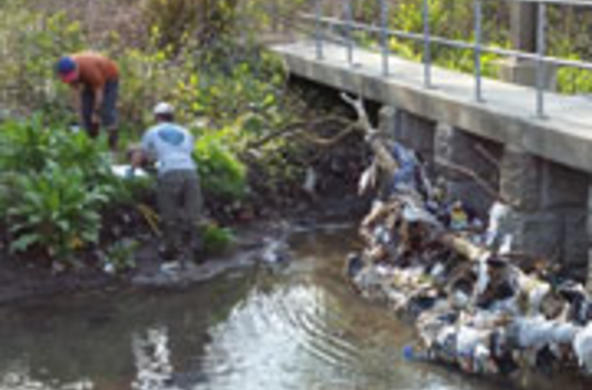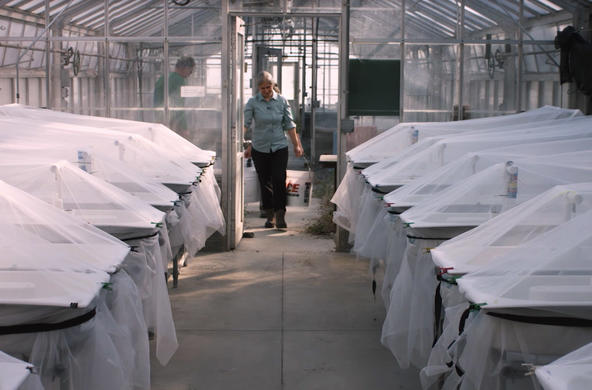Emma Rosi-Marshall has received funding from the Wallace Genetic Foundation, Inc. and the Cornell-Douglas Foundation to help build an artificial stream facility on the Cary Institute's campus, to facilitate research on the effects of pharmaceuticals on stream ecosystems.
Globally, lakes and rivers are polluted by an array of pharmaceutical and personal care products. Freshwater fish and the invertebrates they eat are increasingly bathed in a weak solution of caffeine, estrogen, antibiotics, and antihistamine drugs—but little is known about the levels at which these compounds become toxic or lethal, or what the effect on our drinking water may be. Few places exist without some level of these contaminants, so scientists need artificial streams to serve as control waters for research.
Rosi-Marshall constructed a similar system during her tenure at Loyola University Chicago. Support from the Wallace Genetic Foundation and the Cornell-Douglas Foundation will allow her to continue to pursue research on an emerging environmental problem of global conern.







